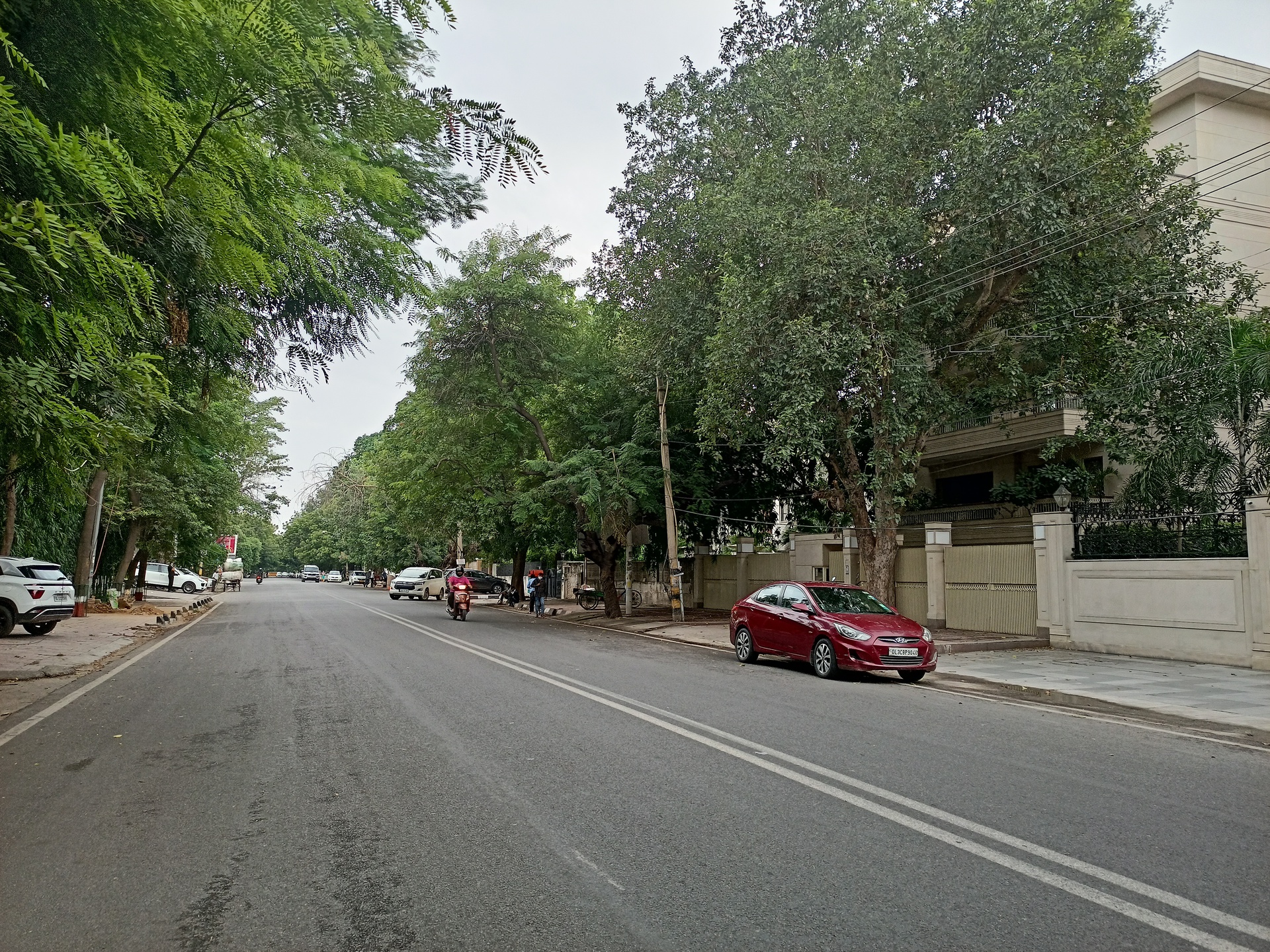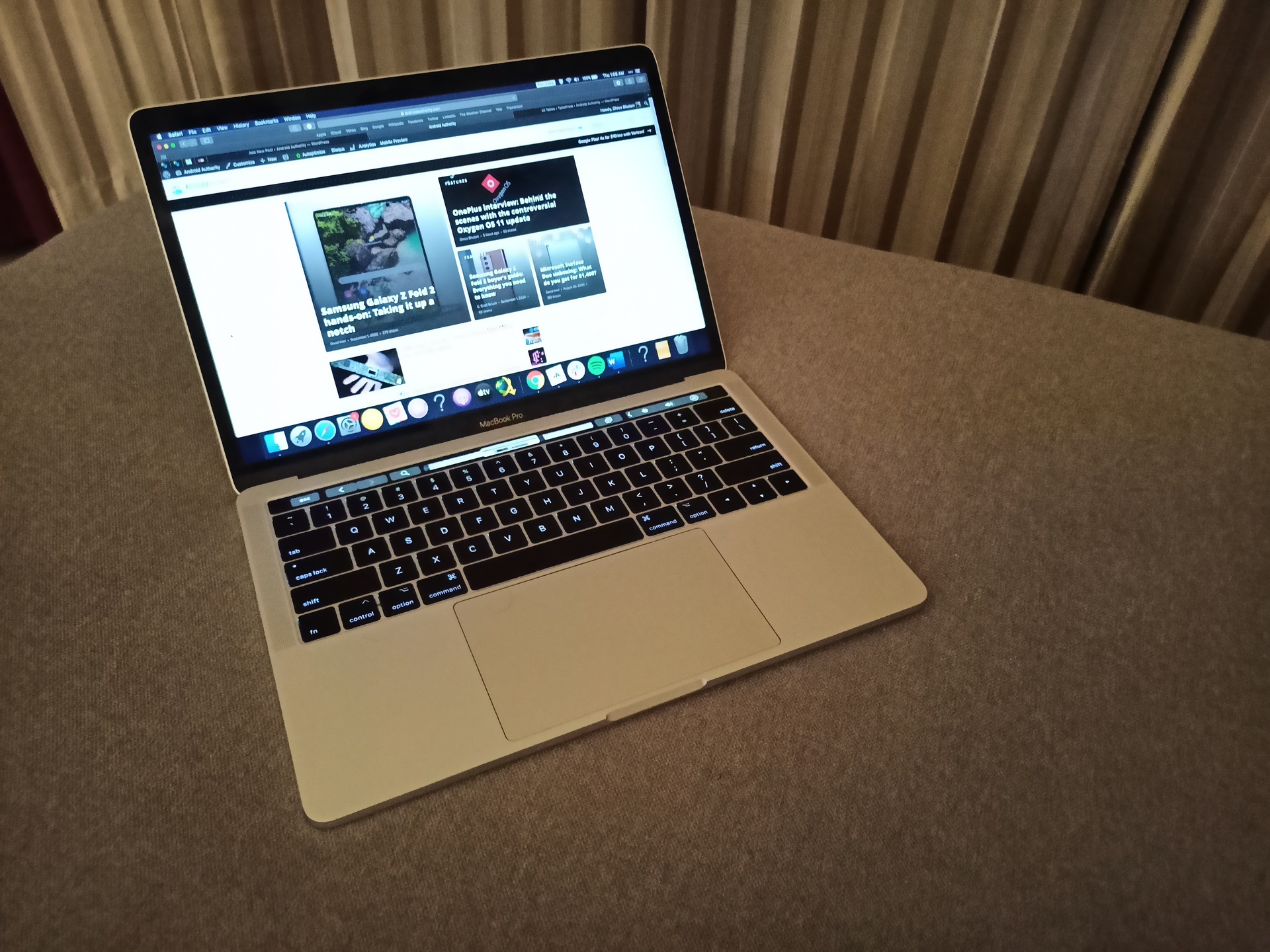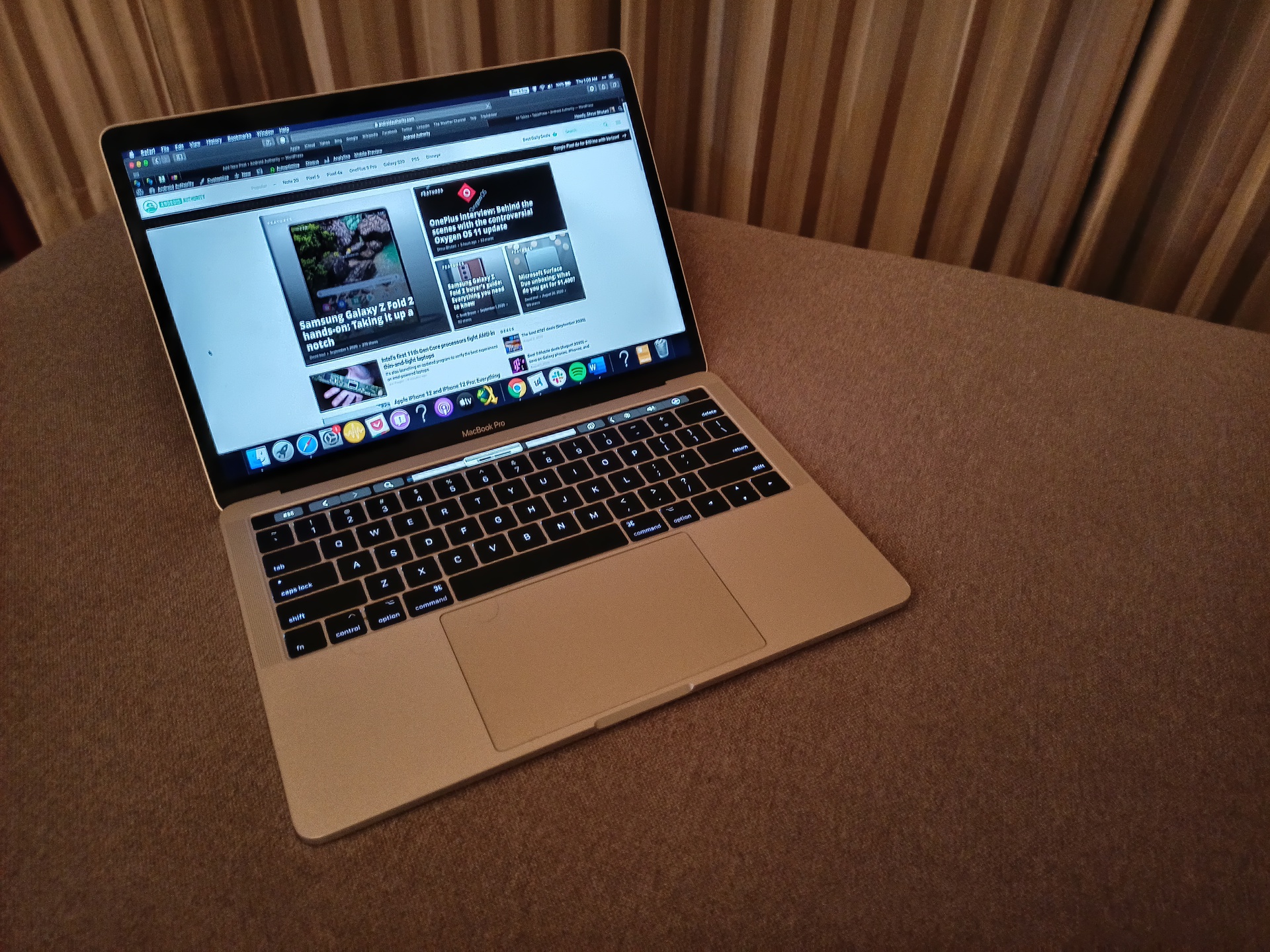Realme’s rapid iteration in the smartphone space has changed the industry over the last two years. While it is debatable whether releasing a huge number of variants is a great strategy, there’s no doubt it makes it possible to have an option for everyone. Six months after the launch of the Realme 6, the Realme 7 follows it up with a few design changes and other changes to keep it up to date.
Is the Realme 7 a good option for buyers looking for a great new mid-range smartphone? Let’s find out in Android Authority’s first impressions of the Realme 7.
Design: Subtle evolution

The Realme 7 takes a small step forward to keep up with modern design trends. While the Realme 6 went all-in on a flashy gradient-rich design, the refreshed model is a lot more subtle, while staying familiar enough.

The build quality is excellent for the price. The Realme 7 sports an all-plastic construction, but the back panel could confuse you. It feels remarkably like soft-touch glass and the dual-tone band on the left adds to the visual appeal. My only gripe is that, like all plastics, it attracts smudges that can be hard to get rid of.
The power button houses a fingerprint reader and is blazing fast at unlocking the phone.
The same attention to detail continues over to the ergonomics and buttons. The segmented volume rocker lies on the left and is very easy to press down on with a satisfying click. Meanwhile, the power button on the right doubles up as a fingerprint scanner.

I found the fingerprint scanner to be blazing fast at unlocking the phone. This is absolutely the way to go, compared to the less-than-stellar under-display implementations we often see in this price band.

Elsewhere, there’s a USB-C port and a single speaker along the bottom edge of the phone in addition to a headphone jack.
Weighing in at 196 grams, the phone is slightly on the heavier side, but while you do notice it, it’s not a major concern.
Switching over to the display, the 6.5-inch Full HD panel with Gorilla Glass 3 is excellent. The display sports a camera cutout at the top-left corner, and bezels are fairly minimal.

I found the default color tuning to be a bit oversaturated, making colors pop. However, the software makes it easy to adjust the color temperature to your liking.
The peak brightness levels are great and I had absolutely no issues viewing the screen outdoors. What’s even better is that the screen sports a 90Hz refresh rate, which is great to see at an affordable price point. It adds an extra level of fluidity to the user experience, especially while navigating the interface. You can lock the screen to 60Hz or 90Hz, depending on your preferences.
Finally, the Realme 7 lacks an IP rating, as is the norm in the entry-level, mid-range segment.
The Realme 7 doesn’t take a big leap forward in product design, but the changes here are all excellent and users will find little to complain about.
Software: Polarizing



The Realme 7 runs Android 10 with Realme UI slapped on top. Software is where things start getting a bit polarizing.
On one hand, the optimization here is top-notch. The interface remains fluid all the way through. Paired up with the 90Hz display, the subtle animations make it a treat to use.
Between the bloatware, and questionable decisions with gestures, I'm not too fond of the direction Realme UI is heading in.
However, it is hard to discount the sheer amount of bloatware onboard. The preloaded apps include Facebook and Amazon apps, as well as redundant extras like an additional browser and WPS Office; not all of these can be removed. On top of that, the built-in browser has a tendency to spam the notification shade. Not cool.
Over to the actual interface, while the phone sticks to the theme of stock Android, I just couldn’t get used to the idea of global search replacing the standard notification shade gesture. Seriously, Realme, give me an option switch the pull-down to the notification shade instead of your lackluster search option.
Performance: No complaints

The Realme 7 is the first phone with the MediaTek Helio G95 chipset. This is a mild upgrade over the G90T on the Realme 6 and sports two Cortex A76 cores clocked at up to 2.06Ghz, along with six Cortex A55 efficiency cores. The bigger boost comes on the GPU side, which should boost gaming performance.
Realme 7’s performance is top tier and the excellent optimization is evident. Not once did I come across a slowdown throughout my time with the phone, even while pushing it hard.
Performance is excellent and the phone sails through everything you throw at it.
While PUBG has now been banned in India, I managed to get a few rounds in ahead of the move. It was possible to crank up the game to the highest settings and it retained smooth frame rates across the board. The Realme 7 doesn’t heat up much either and should be a good option for smartphone gamers.
On the battery side of things, the 5,000mAh cell is excellent and enables two days of use on a single charge. With regular use, I managed a full day of use and got through most of the next day before having to look for a charger. Of course, this will vary depending on your usage patterns and gaming will put a bigger dent in battery life.
When it comes time to charge up the phone, the included 30W charger is good enough to top off the phone in just over 60 minutes.
Camera: Decent hardware, disappointing software

The camera setup here is nigh identical to the one on the Realme 6. This includes a 64MP primary sensor paired up with an 8MP ultra-wide shooter. Elsewhere, there’s a 2MP macro mode and an additional 2MP monochrome sensor to improve portrait mode. Finally, over to the front is a 16MP front-facing camera.

A 64MP sensor is well and good, but camera tuning plays a large role in the image output. Unfortunately, I can’t say that photos from the Realme 7 impressed me much. Across settings, the camera shoots overexposed and oversharpened images. This results in blown-out highlights, and images that look washed out instead of natural.

Additionally, the HDR processing doesn’t work too well. This results in images where shadows are elevated to unnatural levels and the oversharpening is very evident.
 Realme 7 Primary Camera Realme 7 Ultra Wide
Realme 7 Primary Camera Realme 7 Ultra Wide

There’s a significant difference in the color processing between the primary and ultra-wide cameras. Images from the ultra-wide shooter tend to look a bit more natural, but there’s not much detail to be found here. Zoom in and you’ll notice a surprising amount of smearing because of excessive noise reduction.

The macro mode does the trick if it is something you particularly care about, but the wonky color tuning and over-exposed images made it a non-starter for me.
 Realme 7 low light Realme 7 indoor night mode
Realme 7 low light Realme 7 indoor night mode

Surprisingly, the Realme 7 does a pretty decent job at capturing low-light images. Even the default mode isn’t half bad, but the night mode — if you can hold your hand steady for a few seconds — lets you capture reasonably well-exposed, bright shots in very dim conditions.
The 16MP selfie camera does a reasonable job, even though skin retouching is very apparent. Finally, the phone does a good job at capturing videos, though once again, there’s a definite skew towards boosting the exposure. You can take a look at high-resolution Realme 7 image samples here.
| Realme 7 | |
|---|---|
| Display | 6.5-inch, FHD+ IPS LCD 2,400 x 1,080 resolution 90Hz Gorilla Glass 3 |
| Chipset | Mediatek Helio G95 2x Cortex-A76 6x Cortex-A55 |
| GPU | Mali-G76 MC4 |
| RAM | 6/8GB |
| Storage | 64/128GB |
| MicroSD | Yes |
| Battery | 5,000mAh USB-C 30W charging |
| Camera | Rear: 64MP f/1.8 8MP f/2.3 ultra-wide 2MP f/2.4 macro 2MP f/2.4 monochrome portrait Video: 4K at 30fps, 1080p at 120fps Front: 16MP f/2.0, 79.3 degree FoV |
| IP Rating | N/A, splash-proof |
| Headphone port | Yes |
| Connectivity | Dual nano-SIM slots WiFi 802.11 a/b/g/n/ac 2.4/5GHz Bluetooth 5 |
| Security | Side-mounted fingerprint scanner |
| Software | Android 10 Realme UI |
| Colors | Mist White Mist Blue |
| Dimensions | 162.3 x 75.4 x 9.4mm |
| Weight | 196.5g |
Is the Realme 7 worth buying?
The Realme 7 is yet another well-balanced piece of kit by the brand. Sure, I could complain about the rampant iteration with minimal changes, but there’s not much to complain about the hardware here.
The phone is very well built despite the use of polycarbonate, unlike the Nokia 5.3. Meanwhile, the 90Hz display and spruced-up MediaTek chipset keeps performance rock solid. Battery life is truly excellent here and so is the charging time.
Camera tuning aside, the Realme 7 is a very well-balanced phone that delivers on build quality, performance and excellent battery life.
I wish Realme had spent a bit more time tuning the camera software, as that’s one area where the phone doesn’t really live up to the promise.
Some of the Realme 7 alternatives to consider include the Poco M2 Pro and the Xiaomi Redmi Note 9 Pro, both of which pack better cameras. However, you’ll be giving up on that sweet 90Hz panel.
All in all, priced at Rs. 14,999, the Realme 7 offers a whole lot of value, though it isn’t quite an all-rounder. Definitely worth a look, though if smartphone photography is a priority, this might not be the one for you.
from Android Authority https://ift.tt/356dyDs

No comments:
Post a Comment